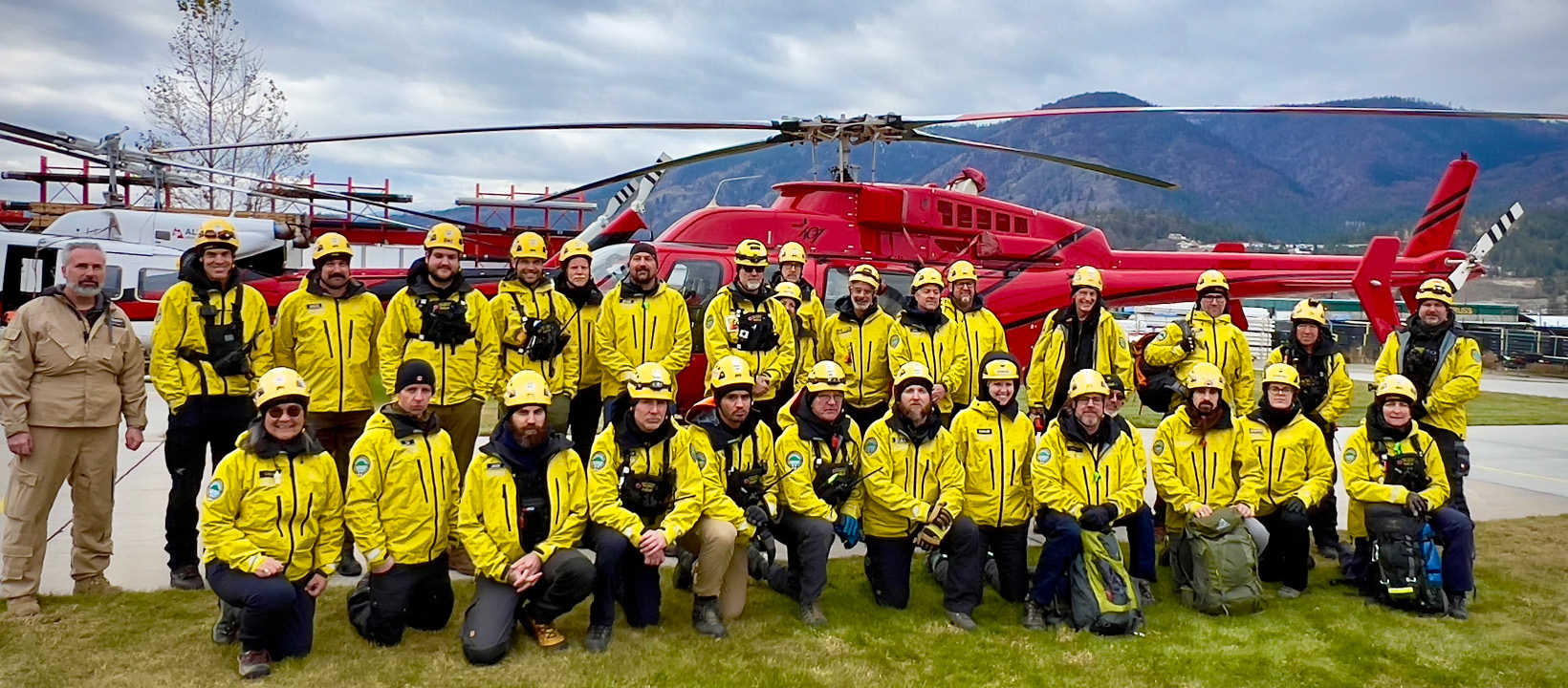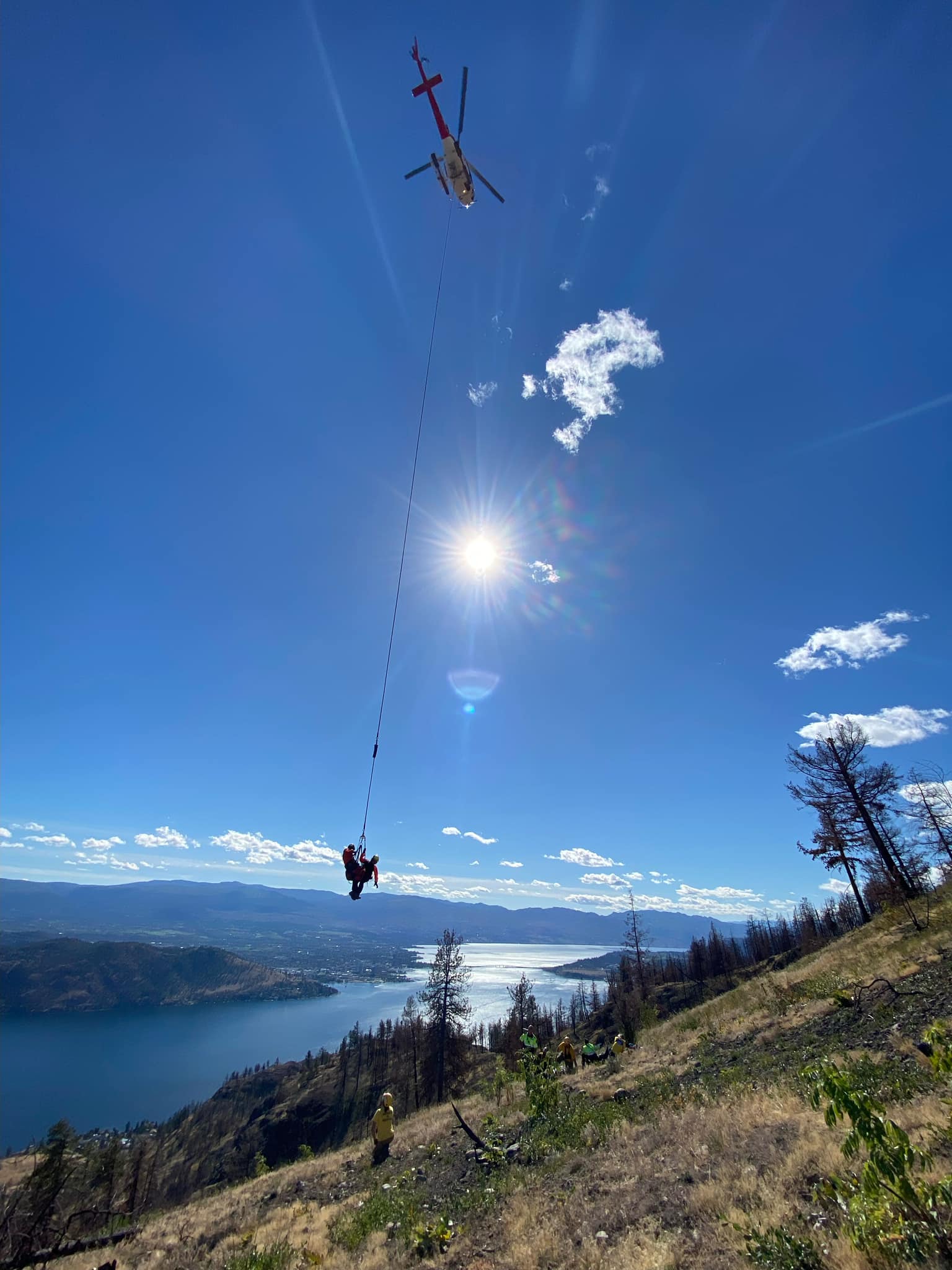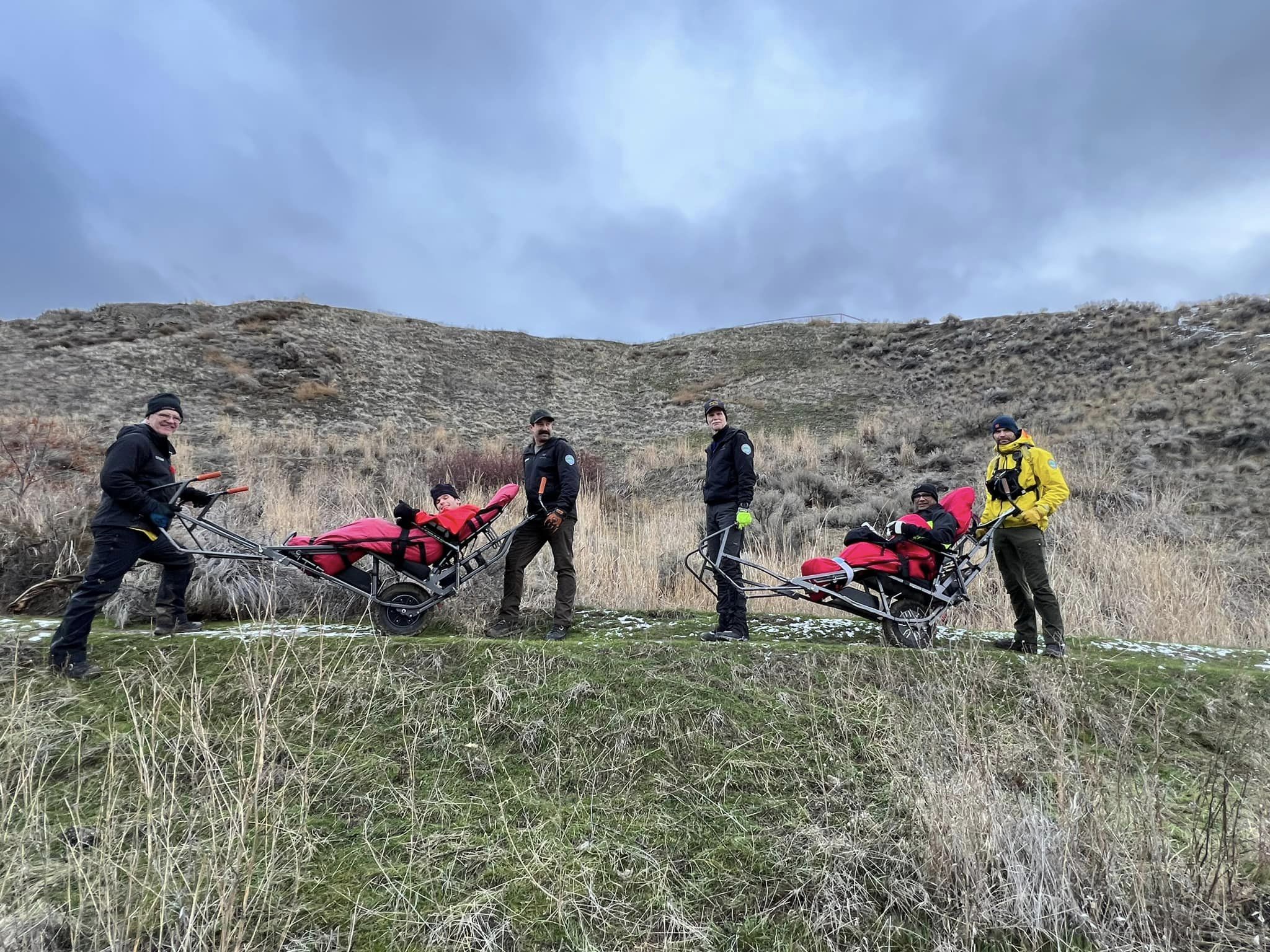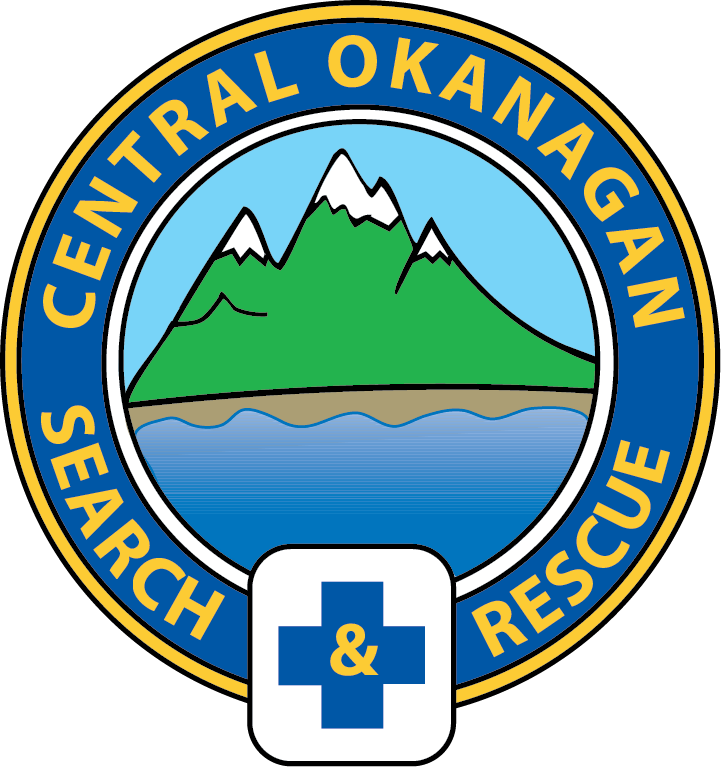About Us
Since 1954 Central Okanagan Search and Rescue (COSAR) has been providing Kelowna and the surrounding area with a team of highly trained volunteers committed to helping those that need assistance in both the backcountry and urban environments.
The team consists of approximately 50 dedicated volunteers from all walks of life who are on call 24/7, 365 days a year. Averaging over 100 call outs per year, team members gladly give up family dinners, Christmas mornings, and a good nights sleep so that others may live.
The team’s training covers technical skills such as advanced first aid, high angle rope rescue, wilderness and urban ground search, helicopter rescue, and swift water rescue.

Interested in joining?
We typically recruit new team members every two years, and we are happy to announce that applications are now OPEN! The application process for our 2024 Member In Training Program closes at midnight on September 30, 2024.
Check-out our Recruitment page for more information on how to apply.
History
The origins of Central Okanagan Search and Rescue (COSAR) can be traced back to a pivotal event in 1954. During a family camping trip, a young girl became separated from her group, highlighting the urgent need for a dedicated search and rescue team. At that time, no trained or organized group was available to assist in the search, leading a group of BC Civil Defense Volunteers from the community to initiate a search effort. Their success in finding the child underscored the necessity for a formal Search and Rescue organization.
This group of dedicated volunteers became the founding members of what would evolve into the Central Okanagan Search and Rescue. Established as the oldest organized Search and Rescue team of its kind in British Columbia, COSAR has a rich history of community service and expertise.
In 1997, a significant milestone was reached when Kelowna Search and Rescue and Westbank Search and Rescue merged, resulting in the formation of the Central Okanagan Search and Rescue as we know it today. This amalgamation strengthened the organization, enhancing its ability to serve and protect our community.
Today, COSAR continues to build on its storied legacy with a commitment to excellence and a steadfast dedication to ensuring the safety of our region. Through innovation, teamwork, and community support, COSAR remains a beacon of hope and reliability in times of need.
Exciting News!
We’re thrilled to announce that COSAR is turning 70 on October 5, and we’re planning a special celebration to commemorate this milestone – Come join the celebration!
Our Commitment
We are proud to be able to provide search and rescue at no cost and have no plans to charge in the future.
We firmly believe that charging for rescues is not the solution to securing proper funding for volunteer teams across the province. Our primary concern is that the fear of potential charges may cause a lost or injured person—or their loved ones—to delay calling for help, putting lives at greater risk.
Why We Don't Support Charging for Rescues
With over 60 years of experience in Search and Rescue within the Central Okanagan, we’ve encountered numerous instances where the belief that a rescue would incur costs has led to dangerous delays. In some cases, individuals have actively avoided rescuers out of fear of being charged, compounding the risks they face.
Unintended Consequences
Charging for rescues may also encourage families or friends to attempt self-rescues, often leading to confusion or additional rescues for untrained individuals. This increases the complexity and danger of the situation, ultimately putting more lives at risk.
Other Considerations
Charging for rescues is not as straightforward as it may seem and charging for rescues isn’t cost-effective. Enforcement, legal processes, and collections are expensive for taxpayers, and it’s hard to distinguish between negligence and honest mistakes. Instead, BC’s Search and Rescue is volunteer-based and operates at minimal taxpayer expense.

The Risks of Delayed Response
Increased danger to the subject: Prolonged exposure to the elements, reduced chances of being found, and worsening injuries.
Greater risk to rescuers: Larger search areas, extended exposure to hazards, and decreased availability of air support due to time constraints.
Higher costs to taxpayers and volunteers: Prolonged searches can require more resources and time, escalating the overall cost.
Air Support Considerations
Our team frequently utilizes helicopters during rescues. Any delay that extends into dusk or nighttime hours introduces significant risks, as our helicopters are unable to operate after dark. This lack of air support endangers both the subject and the rescuers.
Even a short delay could mean the difference between a swift helicopter extraction and a hazardous, prolonged stretcher evacuation through challenging terrain.
Prioritizing Safety Through Education, Not Penalties
Our mission is to save lives, not penalize those in need.
Our focus is on public education to reduce the need for rescues by encouraging outdoor users to plan ahead, develop skills, and seek help when necessary.
While individuals must take responsibility for their actions, proper training in outdoor skills and self-rescue can prevent many emergencies. Although rare, irresponsible behavior can sometimes lead to rescues, but penalizing these individuals through fees is not the solution. Most incidents are avoidable with the right preparation, and our goal is to promote safety, not discourage people from seeking help when needed.
Visit our Public Resources page for more information!

COSAR Provides Services to:
- Emergency Management BC (EMBC)
- RCMP
- Municipal Fire Services
- BC Ambulance Service
- Local and Regional governments
- Other SAR teams across BC
For the nearly 2500 volunteers that belong to the 80 registered search and rescue teams in the Province of British Columbia the moral obligation of helping those in need will always take precedence over political, legal, economic and jurisdictional issues. We conduct over 1300 responses in BC each year; from urban searches for people with dementia, wilderness searches for people who become lost on hikes, to backcountry rescues using technical expertise and equipment.
